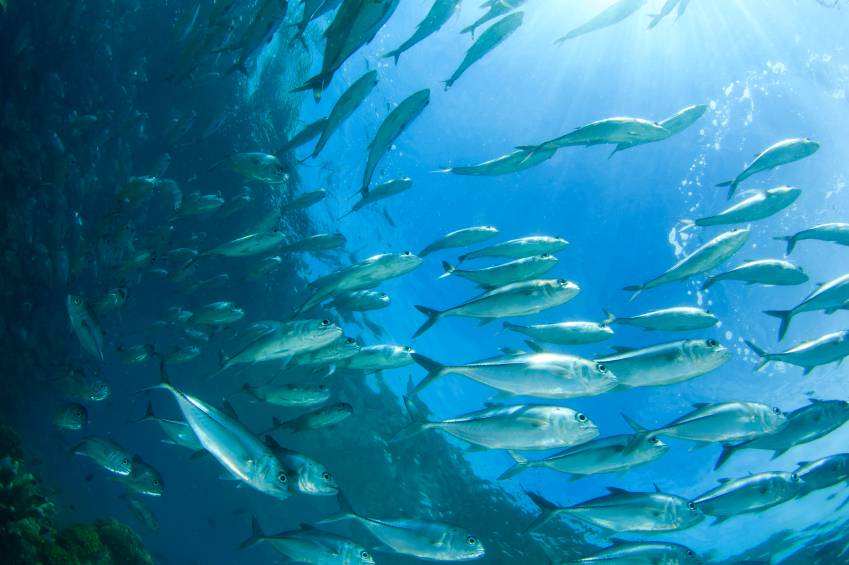Fisheries Subsidies
The 2022 Food and Agriculture Organisation (FAO) State of World Fisheries Report, estimates that globally fish stocks are in the worst state since records began.

Subsidies are a key factor in the widespread depletion of the world’s fish stocks. This is because they encourage overfishing by artificially reducing costs for the fishing industry, and inflating earnings. Since the Doha round was launched in 2001, fishing subsidies have increased and fish stocks have declined around the world.
The 2022 Food and Agriculture Organisation (FAO) State of World Fisheries Report, estimates that globally fish stocks are in the worst state since records began, with a third of global stocks estimated to be overfished. The fraction of fishery stocks within biologically sustainable levels has decreased from 90 percent in 1974 to 64.6 percent in 2019. The 2018 FAO report records that global fisheries subsidies are approximately USD35 billion.
New Zealand has been a long-standing and leading advocate of fisheries subsidies reform at the World Trade Organisation (WTO). New Zealand was the first WTO Member to raise the issue in the WTO Trade and Environment Committee in the late 1990s.
WTO negotiations on an agreement to prohibit harmful fisheries subsidies were launched in 2001 as part of the WTO Doha Development Round. In 2015 world leaders adopted as part of the UN Sustainable Development Goals (SDG) target 14.6, which set a deadline of 2020 for eliminating subsidies to illegal, unreported and unregulated (IUU) fishing and for prohibiting certain forms of fisheries subsidies that contribute to overcapacity and overfishing (OCOF). An Agreement on Fisheries Subsidies was agreed in June 2022 at the WTO 12th Ministerial Conference, with negotiations ongoing to enhance the Agreement, especially in relation to overcapacity and overfishing.
New Zealand has also negotiated to secure prohibitions on harmful fisheries subsidies in its free trade agreements (FTAs) with other countries, including subsidies for fishing that negatively affects overfished stocks, and for illegal, unreported or unregulated fishing.
Read more about New Zealand’s FTAs that address fisheries subsidies:
Prohibiting harmful fisheries subsidies will have significant environmental, developmental and economic benefits for New Zealand and Pacific nations.

WTO Agreement on Fisheries Subsidies
After over 20 years of negotiations, the conclusion of the Agreement on Fisheries Subsidies (FSA) in June 2022 marked a historic step for the sustainability of global fisheries resources and for the livelihoods of those with fisheries interests. It is the first WTO agreement to focus on the environment, the first to substantially meet a United Nations Sustainable Development Goal, and only the second multilateral agreement concluded at the WTO since its inception in 1995.
On 6 September 2023, New Zealand formally notified the WTO of its ratification of the FSA by depositing its Instrument of Acceptance in Geneva.
Key outcomes
The FSA prohibits WTO Members from the granting or maintaining of subsidies:
- To a vessel or operator if they are determined to have taken part in illegal, unreported or unregulated fishing (IUU) or fishing related activities in support of IUU fishing (Article 3);
- For fishing or fishing related activities regarding an overfished stock, although subsidies (and other related measures) that are directed to restoring overfished stocks to a biologically sustainable level will be permitted (Article 4); and
- To fishing or fishing related activities on the unregulated high seas (Article 5), i.e. in areas beyond national jurisdiction and where there are no regional fisheries management arrangements).
In addition, the FSA contains two ‘due restraint’ clauses: one for subsidies provided to vessels not flying the flag of the subsidising Member, and the other for subsidies provided to fishing where the status of the stock is unknown. Finally, it includes related notification and transparency obligations to improve the monitoring of these practices and related subsidies.
New Zealand stands to benefit from the improvement in the state of the world’s oceans and the sustainability of shared fish stocks. Beyond this, New Zealand’s long-standing practice is not to provide direct subsidies to the fishing industry, and as such a reduction in the global spend on fisheries subsidies arising from the FSA will improve the competitiveness of our industry in international markets.



Next steps
For the Agreement to become operational, two-thirds of members have to deposit their “instruments of acceptance” with the WTO.
Members also agreed at MC12 to continue negotiations on outstanding issues, with a view to making recommendations by MC13 for additional provisions that would further enhance the disciplines of the Agreement. These negotiations are ongoing.
Find out more about the WTO Agreement on Fisheries Subsidies.


Statements
- New Zealand welcomes visiting WTO Director General | Beehive.govt.nz
- Joint statement: Closer Economic Relations Ministerial talks in Queenstown | Beehive.govt.nz
- Statement at the 19th Forum Fisheries Committee Ministerial Meeting in Tarawa | Beehive.govt.nz
- Address to Seafood New Zealand “Sea into the Future” Conference | Beehive.govt.nz
- Speech to the China Business Summit | Beehive.govt.nz
- Minister to attend second United Nations Ocean Conference in Portugal | Beehive.govt.nz
- New Zealand leadership contributes to significant progress at the WTO | Beehive.govt.nz
- NZ’s trade aims advanced at Davos meetings | Beehive.govt.nz
- Global trade, business promotion focus of Shanghai meetings | Beehive.govt.nz


